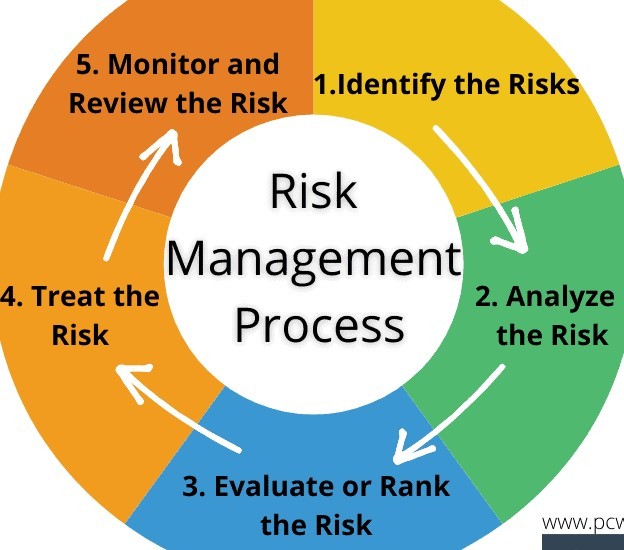The Importance and Importance of Risk Management in Ensuring Corporate Continuity
The Importance and Importance of Risk Management in Ensuring Corporate Continuity
Blog Article
The Importance of Recognizing the Importance of Risk Management in Numerous Industries

The Core Idea of Risk Management and Its Function
Risk Management, the cornerstone of many sectors, pivots on the identification, evaluation, and reduction of unpredictabilities in a service environment. By correctly identifying potential risks, businesses can create approaches to either protect against these risks from occurring or decrease their impact. As soon as threats have actually been identified and examined, the mitigation process includes creating methods to decrease their possible impact.
Advantages of Executing Risk Management in Organization Workflow

Unveiling the Duty of Risk Management in Different Industries
While every market challenges its special set of dangers, the implementation of Risk Management approaches stays a common in their quest of sustainability and growth. In the healthcare field, Risk Management involves making sure person safety and security and data protection, while in finance, it involves mitigating investment risks and guaranteeing regulatory conformity (importance of risk management). Construction companies concentrate on employee safety and security, task hold-ups, and spending plan overruns. In the modern technology sector, business mitigate cybersecurity hazards and innovation obsolescence. Eventually, the duty of Risk Management throughout sectors is to identify, evaluate, and alleviate threats. It is a necessary part of tactical planning, allowing companies to safeguard their properties, maximize chances, and attain their goals.
Real-life Study Showing Successful Risk Management
To understand the importance of Risk Management in these numerous industries, one can want to several real-life circumstances that highlight the successful application of these steps. In the energy sector, British Petroleum developed Risk mitigation plans post the 2010 Gulf of Mexico oil spill. They implemented better safety treatments and more stringent guidelines which substantially minimized additional mishaps. In financing, Goldman Sachs efficiently navigated the 2008 economic dilemma by recognizing prospective mortgage-backed safety and securities threats early. Toyota, publish the 2011 quake in Japan, modified its supply chain Management to decrease interruption threats. These cases show just how industries, picking up from crises, successfully applied Risk Management approaches to decrease a knockout post future dangers.
Future Patterns and Developments in Risk Management Methods
Cybersecurity, as soon as a peripheral worry, has actually catapulted to the leading edge of Risk Management, with methods focusing on detection, prevention, and action. The integration of ESG (Environmental, Social, Governance) elements into Risk Management is another expanding fad, mirroring the enhancing recognition of the role that social and ecological threats play in company sustainability. Hence, the future of Risk Management exists in the blend of advanced innovation, innovative techniques, and an all natural strategy.
Conclusion
In conclusion, comprehending the importance of Risk Management throughout a spectrum of industries is vital for their long life and success. Customized approaches can aid mitigate possible threats, safeguard assets, and foster stakeholder trust. Furthermore, positive decision-making aids in governing conformity and maximizes source usage. Eventually, successful Risk Management adds to a lot more resistant and lasting organizations, highlighting the importance of this technique in today's highly affordable and dynamic business atmosphere.
While every market faces its special collection of risks, the execution of Risk Management methods continues to be a common denominator in their search of sustainability and development. In the health care field, Risk Management entails go to my blog ensuring individual safety and security and data security, while in money, it includes mitigating financial investment dangers and guaranteeing regulatory conformity. Ultimately, the duty of Risk Management throughout markets is to determine, evaluate, and mitigate threats. These instances demonstrate just how sectors, finding out from crises, effectively applied Risk Management methods to decrease future risks.
:max_bytes(150000):strip_icc()/operational_risk.asp-Final-4be32b4ee5c74958b22dfddd7262966f.png)
Report this page